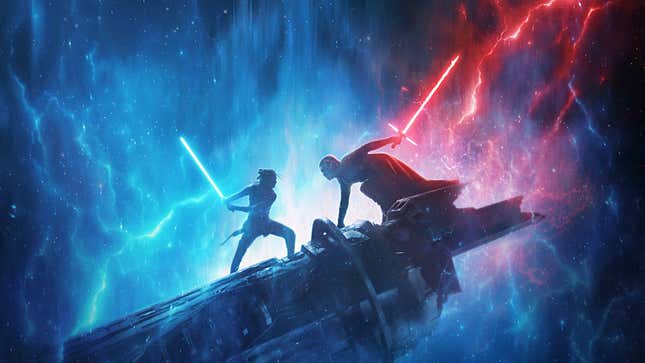
Pop culture moves at lightning speeds thanks to the internet. We are able to discuss whatever we see as soon as we see it. There are no secrets on the internet. Walk around the block and you might stumble into all kinds of information. For movies and games, that means spoilers. Those dreaded plot point reveals or leaked screenshots can spell disaster for many fans. For me, I’ve embraced a different philosophy: Spoil me, you bastards.
I’ll start by saying that I have many friends, both here in the Kotaku office and elsewhere, who struggle with spoilers. I understand and respect that. The joy of a mystery story is the chase for truth; knowing the truth beforehand sucks that from the experience. A chief component of challenging action games is not knowing what boss you might face next. You need to adapt and build a strategy in real time. Shock, excitement, bewilderment—letting the twists and turns hit you right in the gut can help a story soar to new heights. Spoilers often ruin that.
As the internet ages and as pop culture swells into a massive, corporate force, there’s been a corresponding sensitivity to spoilers. In some cases, this leads to extreme reactions for minor things. The kids in Fire Emblem: Three Houses might have to fight each other? How dare you tell us that thing in the trailer? Shenmue 3, the third game in a series about chasing down a dangerous killer, has a confrontation with said villain? You piece of shit. These reactions arise from an understandable desire to experience things firsthand, but in some cases, cries of “Spoiler!” feel like the boy who cried wolf.
Here at Kotaku, it sometimes becomes necessary to talk about these sorts of details to provide a complete article about the games in question. Knowing what to share and what to write around is a balance, one I fuck up sometimes. I live each day by diving into games and culture, seeing what communities are up to and what they are reacting to. I dance the line with spoilers, risking exposure to plot details with every click. To do my work, to talk about media honestly, I needed to make a choice. I chose to not worry about spoilers. And it lifted a huge weight from my shoulders.

Living an online life fearful of spoilers creates a very specific kind of anxiety. You make lists of terms to block on social media, download browser add-ons to prevent you stumbling into Reddit, turn off autoplay on any and all videos, pray that your friends don’t blab. It’s like knowing there’s a bomb under the table but not knowing when it will go off: a paranoia that one errant tweet or YouTube recommendation could steal the surprise from a story. And while my job presents me with a unique reason for seeking out spoilers, I realized that it was also healthy for me. I could exhale.
Humanity has been telling stories for centuries, remixing myths and deeds into new settings and contexts. There is nothing new under the sun. As a critic, I see it clearly; there are patterns and precious few true surprises. Ultimately, execution trumps concept. It is the quality of writing, the richness of dialog, the pace of a story that determines if it is good or bad. The secret to good art isn’t hidden in a mystery box. It’s found within the raw emotionality of a work, the themes that speak to audiences, the believability of a character’s victories and failures. Which is to say, good stories are good because they are told well. Knowing that a character death will occur could steal something from the moment, but moments are more than the raw plot beats. If a story makes you care enough, you’ll cry anyway.
Embracing this provides a skeleton key for modern culture, one which opens pathways to a more holistic engagement with art. It also means you can fucking relax when you hop around the web. Here’s my suggestion, if you think you can manage it: Let go. Pop culture is not worth worrying over. It isn’t worth anguish or anxiety. It’s not a battle you need to win. It’s not a purity contest where you must remain unspoiled. I acknowledge that can’t be the case for everyone. That’s still valid. But heading into this new decade with all of its mass media, trilogies, web series, and AAA hits, take a moment and give it a try. Spoil yourself a little. You might end up liking it.